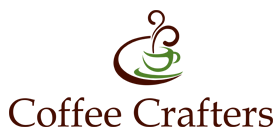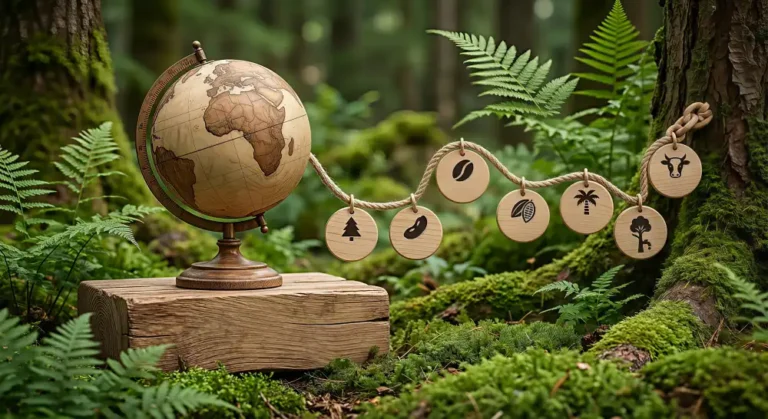Table Of Contents:
- Sustainable Coffee Bean Sourcing: How Traceability, Farmers, and Certifications Ensure Ethical Coffee
- What Is Ethical Coffee Sourcing and Why Does It Matter?
- How Do Fair Trade Coffee Certifications Guarantee Ethical Practices?
- What Are Coffee Traceability Programs and How Do They Work?
- How Do Direct Trade Coffee Farmers Benefit From Sustainable Sourcing?
- Which Sustainable Coffee Brands Lead in Ethical Sourcing and Transparency?
- What Farming Practices Promote Sustainability in Coffee Production?
- What Are Common Questions About Sustainable Coffee Sourcing?
- Frequently Asked Questions
- Final Thoughts
Sustainable Coffee Bean Sourcing: How Traceability, Farmers, and Certifications Ensure Ethical Coffee
In my extensive experience working with coffee roasters and sustainable supply chains, I have come to appreciate that ethical coffee sourcing is not only a moral imperative but also essential for securing a high-quality supply. This article explores traceability programs, certification processes, direct trade relationships, and sustainable farming practices that together create a transparent supply chain benefiting producers, roasters, and consumers alike.
What Is Ethical Coffee Sourcing and Why Does It Matter?
Ethical coffee sourcing means procuring coffee beans through transparent, fair, and sustainable practices. It ensures fair compensation for farmers, protects the environment, and builds long-term relationships across the supply chain. This approach addresses issues such as low farmer incomes, environmental degradation, and uneven profit distribution while providing roasters with a reliable source of high-quality beans.
How Does Ethical Coffee Sourcing Support Sustainable Farming?
Ethical sourcing promotes sustainable farming by encouraging methods that protect soil health, conserve water, and enhance biodiversity. Farmers adopt practices like agroforestry, organic fertilization, and regenerative agriculture, which improve soil fertility and reduce erosion. By offering premium prices for sustainably grown beans, ethical sourcing motivates farmers to invest in practices that ensure long-term productivity and a healthier environment.
Who Are the Direct Trade Coffee Farmers and What Role Do They Play?
Direct trade coffee farmers form transparent, direct relationships with buyers, bypassing intermediaries. These relationships set higher standards for quality and environmental care, providing farmers with fair prices and long-term support. As a result, more value reaches the origin, leading to improved bean quality and innovation in coffee processing while directly benefiting the farming communities.
What Are the Benefits of Choosing Sustainable Coffee Brands?
Sustainable coffee brands deliver improved flavor, consistent quality, and transparency from farm to cup. Consumers enjoy knowing their coffee supports fair labor and environmental care, and roasters build strong reputations by aligning with ethical practices. Such brands often implement stringent quality assurance measures that enhance roasting outcomes and flavor profiles.
How Do Fair Trade Coffee Certifications Guarantee Ethical Practices?
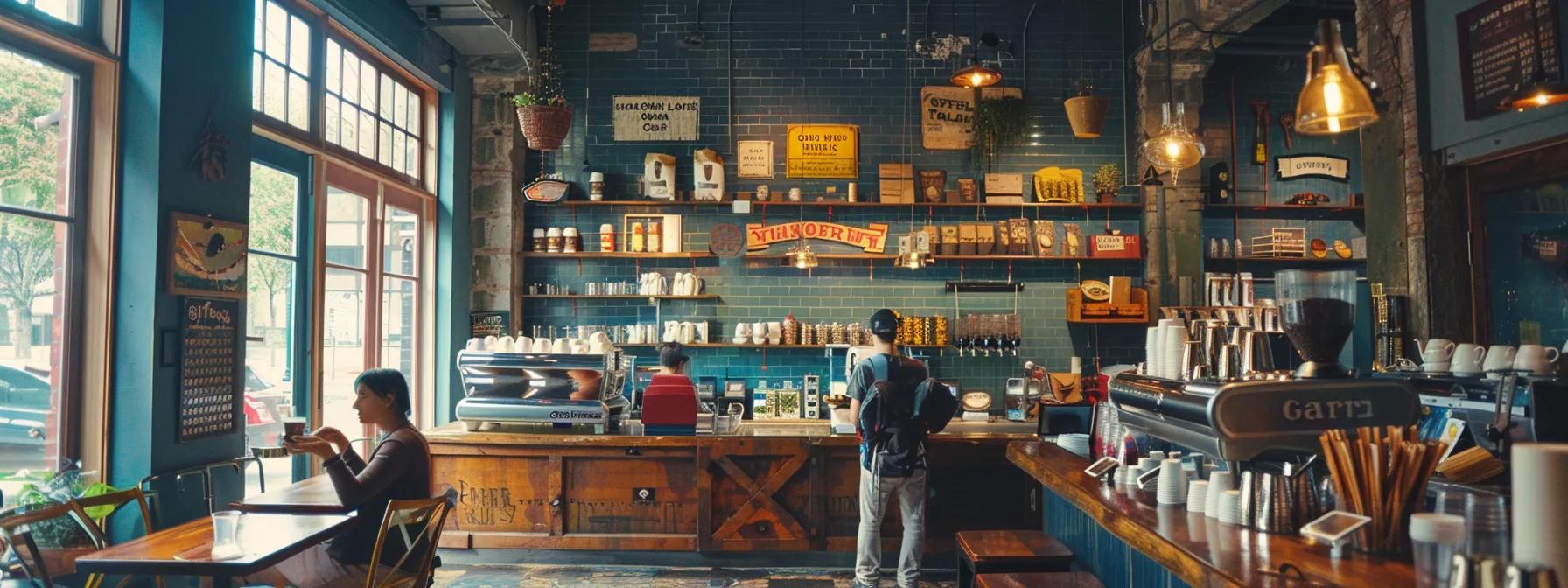
Fair trade certifications verify that coffee meets strict standards regarding fair pricing, labor rights, and sustainable agriculture. These certifications act as independent assurances that producers receive a living wage and that farming methods are environmentally responsible.
What Are the Key Fair Trade and Organic Certifications in Coffee?
Key certifications include Fair Trade USA, Fairtrade International, Rainforest Alliance Certified, UTZ Certified, and Organic USDA. While Fair Trade USA focuses on living wages and community development, USDA Organic prohibits synthetic inputs and emphasizes environmental stewardship. These labels allow consumers and roasters to easily verify ethical and sustainable production practices.
How Do Certifications Impact Coffee Farmers and Their Communities?
Certifications help farmers secure better market prices and obtain technical and financial support to improve productivity and environmental protection. This support can lead to increased yields, better working conditions, and enhanced community infrastructure, ultimately stabilizing coffee production and improving the quality of life for farming communities.
What Is the Process to Obtain Fair Trade Coffee Certification?
Obtaining certification involves adapting production methods to meet specific criteria, followed by a detailed application and on-site audits by certifying bodies. Once compliance is confirmed, the coffee is certified; regular audits then ensure ongoing adherence to fair trade standards, building trust throughout the supply chain.
What Are Coffee Traceability Programs and How Do They Work?
Coffee traceability programs document the journey of every bean from farm to cup using technologies like QR codes, blockchain, and digital databases. These systems provide real-time, verifiable information about the bean’s origin, production practices, and processing history, ensuring full visibility across the supply chain.
How Is Coffee Traceability Achieved Through Technology?
Technological innovations such as blockchain integration, mobile apps, and unique QR codes enable traceability. For example, a QR code assigned to a coffee batch can reveal detailed information about its origin, farming practices, and the socioeconomic status of the producer. This digital transparency builds consumer trust and reassures roasters about the ethical practices behind their coffee.
Why Is Traceability Important for Sustainable Coffee Sourcing?
Traceability ensures accountability and transparency at every stage, reducing the risk of unethical practices. By documenting each step—from cultivation to export—roasters and consumers can verify that coffee is produced under fair working conditions and environmentally responsible methods. This openness also helps forge strong relationships between farmers and buyers.
How Do Traceability Programs Support Direct Trade Relationships?
By providing complete visibility of the supply chain, traceability programs enable buyers to directly engage with farmers or cooperatives. When roasters can trace a bean back to its source, they are more likely to form direct trade agreements that bypass intermediaries, ensuring fair compensation for farmers and fostering long-term, mutually beneficial partnerships.
How Do Direct Trade Coffee Farmers Benefit From Sustainable Sourcing?
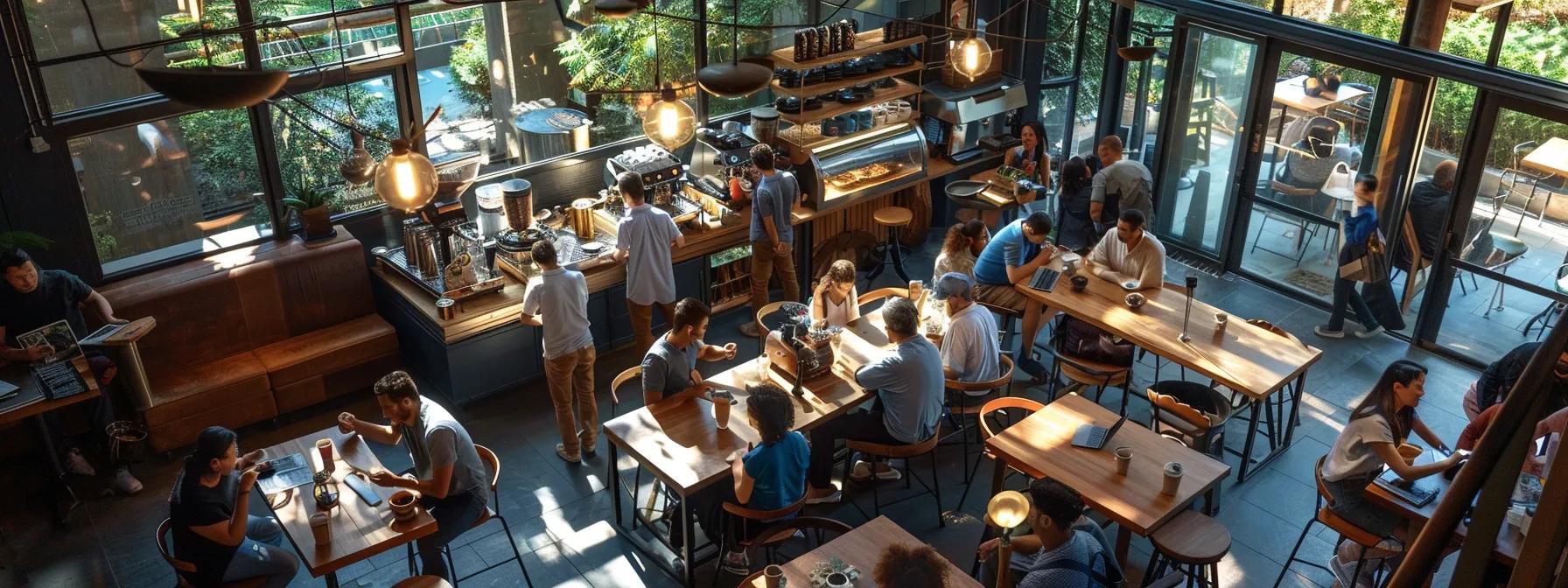
Direct trade allows coffee farmers to gain a larger share of the final sales price by engaging directly with buyers. This approach reduces intermediary costs and directs more revenue into improving farms and communities while enhancing overall coffee quality.
What Makes Direct Trade Different From Other Sourcing Models?
Direct trade reduces intermediaries, fostering personal relationships between buyers and producers. This model supports premium pricing that reflects the true value of ethically produced coffee. As a result, farmers receive better compensation, which encourages investments in quality and sustainable practices.
How Does Direct Trade Ensure Fair Prices and Support Farming Communities?
In direct trade, long-term contracts are negotiated that set above-market rates for high-quality coffee. This stable financial arrangement helps farmers invest in sustainable farming techniques, community infrastructure, and educational programs, creating a cycle of continuous improvement and profitability.
What Are Examples of Successful Direct Trade Coffee Partnerships?
Successful direct trade partnerships can be found in countries like Colombia, Ethiopia, and Costa Rica. In Colombia, for example, direct trade has enabled farmers to adopt organic methods and secure premium prices, which in turn improves bean quality and market access. Such partnerships clearly demonstrate the benefits of direct trade in enhancing both product quality and community development.
Which Sustainable Coffee Brands Lead in Ethical Sourcing and Transparency?
Leading sustainable coffee brands integrate ethical sourcing, robust certification, and comprehensive traceability into their business models. They commit to direct trade practices, fair pricing, and environmental stewardship, setting high standards for quality and responsibility in the coffee industry.
How Do Sustainable Coffee Brands Communicate Their Ethical Practices?
These brands communicate their ethics through clear labeling, digital traceability tools, and detailed marketing. Packaging often includes QR codes that allow consumers to view the journey of the coffee, from farm through to cup. Such transparency, along with testimonials and sustainability reports, reinforces consumer trust and underscores the brand’s ethical commitments.
What Certifications and Traceability Features Do Top Brands Use?
Top brands display certifications like Fair Trade, USDA Organic, and Rainforest Alliance on their packaging and use blockchain-based traceability systems. These features ensure every step—from production to the final roast—is documented, offering consumers a clear view of the coffee’s ethical journey.
How Can Consumers Identify Truly Sustainable Coffee Brands?
Consumers can identify sustainable brands by looking for specific certification logos, detailed origin stories, and digital traceability data on product packaging. Additional resources such as transparency reports and third-party audit results on brand websites also serve as reliable indicators of a brand’s commitment to sustainability.
What Farming Practices Promote Sustainability in Coffee Production?
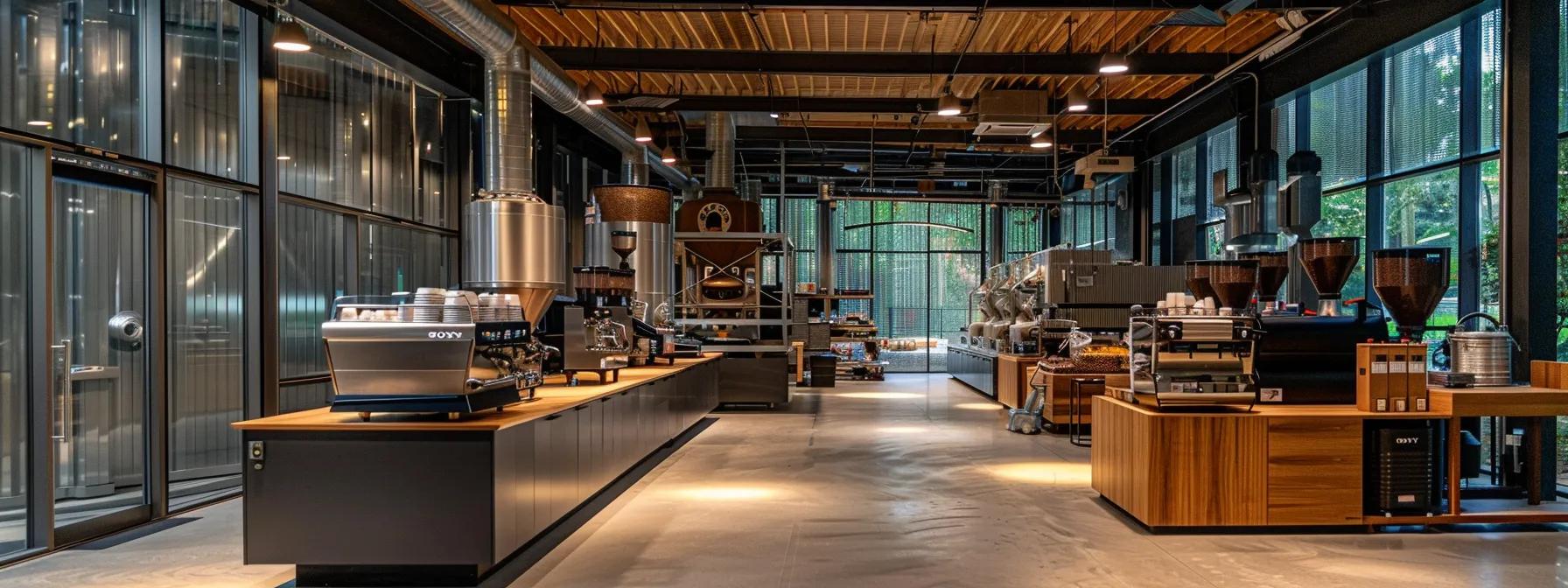
Sustainable coffee production relies on innovative, eco-friendly practices like regenerative agriculture, agroforestry, and organic methods. Such practices help maintain high bean quality and yield while also reducing environmental impact.
How Do Regenerative Farming and Agroforestry Improve Coffee Sustainability?
Regenerative practices such as cover cropping, intercropping, and composting restore soil fertility and reduce chemical dependency. Agroforestry, which integrates trees with coffee crops, creates a natural, protective environment that enhances biodiversity and improves bean flavor. Studies suggest these methods can boost coffee yields while reducing pest issues and soil erosion.
What Role Does Organic Coffee Farming Play in Sustainability?
Organic coffee farming avoids synthetic pesticides and fertilizers, protecting soil organisms and water quality. This method preserves the natural environment, often resulting in improved soil health over time. Organic practices also increase market access for small-scale farmers and support global efforts to reduce ecological degradation.
How Are Coffee Varieties and Regions Linked to Sustainable Practices?
Local environmental conditions and traditional methods often dictate sustainable practices. For instance, high-altitude regions in Latin America and Africa frequently utilize agroforestry due to natural shade and cooler climates, enhancing both flavor profiles and bean quality. Regional initiatives in countries like Costa Rica and Ethiopia support these practices through technical and financial assistance, preserving local traditions while promoting environmental improvement.
What Are Common Questions About Sustainable Coffee Sourcing?
Common questions center on differences between certification programs, methods of verifying coffee origin, and the environmental and social benefits of ethical practices. Clear answers to these questions help both producers and consumers understand the value of sustainable sourcing.
What Is the Difference Between Fair Trade and Direct Trade Coffee?
Fair Trade relies on standardized third-party certification to ensure ethical practices, while Direct Trade is built on personal, direct relationships between buyers and farmers. Direct Trade often allows for higher, more flexible pricing and a closer connection that benefits local communities, whereas Fair Trade offers globally recognized certification logos.
How Can I Verify the Origin of My Coffee Beans?
Consumers can check packaging for certifications such as Fair Trade, Rainforest Alliance, or USDA Organic and use QR codes that link to detailed traceability reports. Many brands now use blockchain technology to provide authenticated production histories, ensuring consumer trust in the origin of the beans.
What Are the Environmental Benefits of Sustainable Coffee Sourcing?
Sustainable coffee sourcing helps reduce soil erosion and chemical runoff, while conserving water and maintaining biodiversity. Methods like organic farming, agroforestry, and regenerative agriculture lessen reliance on harmful pesticides and fertilizers, contributing to a healthier ecosystem and a more resilient agricultural system.
Frequently Asked Questions
Q: How does ethical coffee sourcing impact the flavor of the coffee? A: Ethical sourcing supports practices like organic farming and agroforestry that foster optimal growing conditions, often resulting in richer and more complex flavors.
Q: Can ethical coffee sourcing actually improve the livelihoods of coffee farmers? A: Yes, by ensuring fair prices and supporting direct trade relationships, ethical sourcing provides farmers with better incomes and opportunities for reinvestment in sustainable practices.
Q: What role does technology play in ensuring the traceability of coffee beans? A: Technologies like blockchain and QR codes document every step of the supply chain, ensuring full transparency from farm to cup while building consumer trust.
Q: Are there any challenges associated with obtaining fair trade certification? A: Though certification can require significant changes and regular audits, the long-term benefits—such as access to better markets and improved farming techniques—generally outweigh these challenges.
Q: How do consumers benefit from drinking ethically sourced coffee? A: Consumers enjoy higher quality, unique flavor profiles and the assurance that their purchase supports environmental sustainability and fair treatment of farmers.
Final Thoughts
In conclusion, ethical coffee sourcing ensures every cup is produced with integrity, transparency, and respect for both people and the planet. By adhering to strict certification standards, utilizing advanced traceability systems, and building direct trade relationships, coffee roasters and producers create a sustainable ecosystem that benefits all. As I continue in this industry, I see how these practices elevate coffee quality, empower farming communities, and protect the natural environment—making ethical sourcing essential for enjoying high-quality, sustainable coffee.
